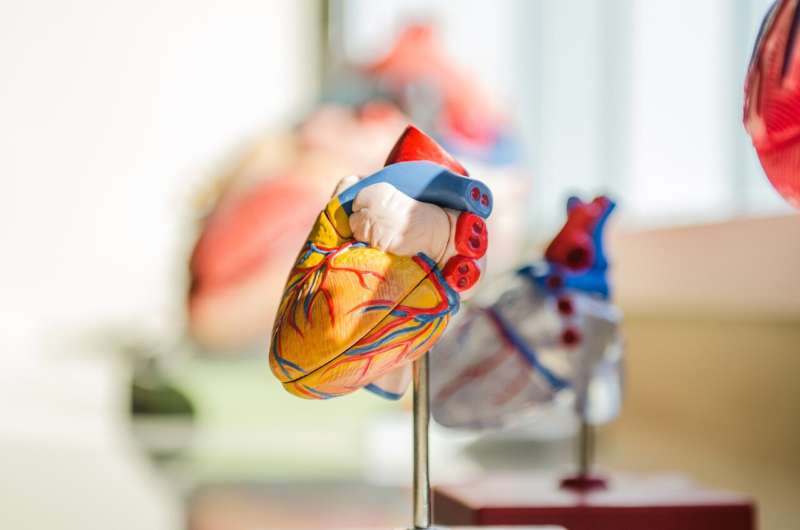AI enables personalized treatment of myocarditis

Myocarditis (inflammation of the heart muscle) is usually caused by viruses, e.g., COVID-19. However, it can also be induced by medication, toxic substances or in the context of a rheumatological disease. Clinical assessment is difficult due to widely varying symptoms, from fatigue to chest pain, palpitations, shortness of breath, and, rarely, sudden cardiac death, the latter associated with sports activity. Nowadays, cardiac magnetic resonance imaging (CMR) is usually performed when myocarditis is suspected. In some cases the data obtained from these scans do not provide a sufficiently personalized risk assessment and respective optimal treatment options.
Review study points to new approaches
In a scientific review in collaboration with the University of Tübingen, the Bristol Heart Institute and Harvard Medical School, a research group led by Prof. Christoph Gräni, MD, Ph.D., from Inselspital and the University of Bern assessed various CMR parameters in terms of their importance for diagnosis, prognosis and monitoring of myocarditis.
“From the comparison of the different used diagnostic tools, we can derive novel approaches for future research and development. Next, we will determine how artificial intelligence (AI) can assist us in a rapid and comprehensive evaluation of the many different clinical parameters and image data,” according to Christoph Gräni. “To this end, I am pleased that we have received funding from the Bern Center for Artificial Intelligence in Medicine (CAIM) to pursue this promising research direction.”
Making complex cardiac function data readable with AI
Using CMR, more than 1,000 measurements can be collected per patient, including parameters on anatomy, tissue characterization of the heart muscle and pericardium (e.g., inflammation or scars), and heart muscle function data. Physicist Yasaman Safarkhanlo, who is a Ph.D. student under the supervision of Prof. Gräni at the Department of Cardiology at the Inselspital, explains that “only AI can evaluate these many variables quickly in their entirety. We want to let the data speak to better understand what exactly happens during myocarditis. This is a novel approach that does not start from our previous understanding of physiology and looks for a known feature in the images. With our project, we’re rather starting from the data aspect to see what new correlations we discover on the images—so, ultimately, we can allow better treatment in the future.”
Personalized counseling of athletes
The researchers’ objective is to develop evaluation tools that can be used to determine whether myocarditis will heal spontaneously and sustainably or whether close monitoring is needed. “Athletes in particular could be better advised in this way: On the one hand, the goal is to avoid sudden cardiac death, but on the other hand, to not unnecessarily restrict athletes in their activity,” Gräni explains. In this respect, all clinical data and image data will one day flow into the Insel Gruppe’s digital clinical information and control system (KISS), where they will be automatically evaluated in order to provide the treating physician with a probability of diagnosis, a prediction of the course of the disease, and an optimal therapy suggestion.
Focus on digitalization and AI applications in medicine
The Department of Cardiology’s commitment to using the latest digital technologies for personalized medicine is timely with the strategic digitalization projects at the Insel Gruppe and the University of Bern. “The Faculty of Medicine of the University of Bern is strongly committed to digitalization in medical education and research. With the establishment of the Center for Artificial Intelligence in Medicine (CAIM) the university and the Insel Guppe have created an excellent research platform. It allows utilizing the latest developments in cutting-edge digital technology and artificial intelligence for personalized treatment approaches and to anchor this knowledge in education and training,” says Prof. Claudio Bassetti, MD, Dean of the University’s Faculty of Medicine and Director and Chief Physician of the Department of Neurology at Inselspital.
Source: Read Full Article
